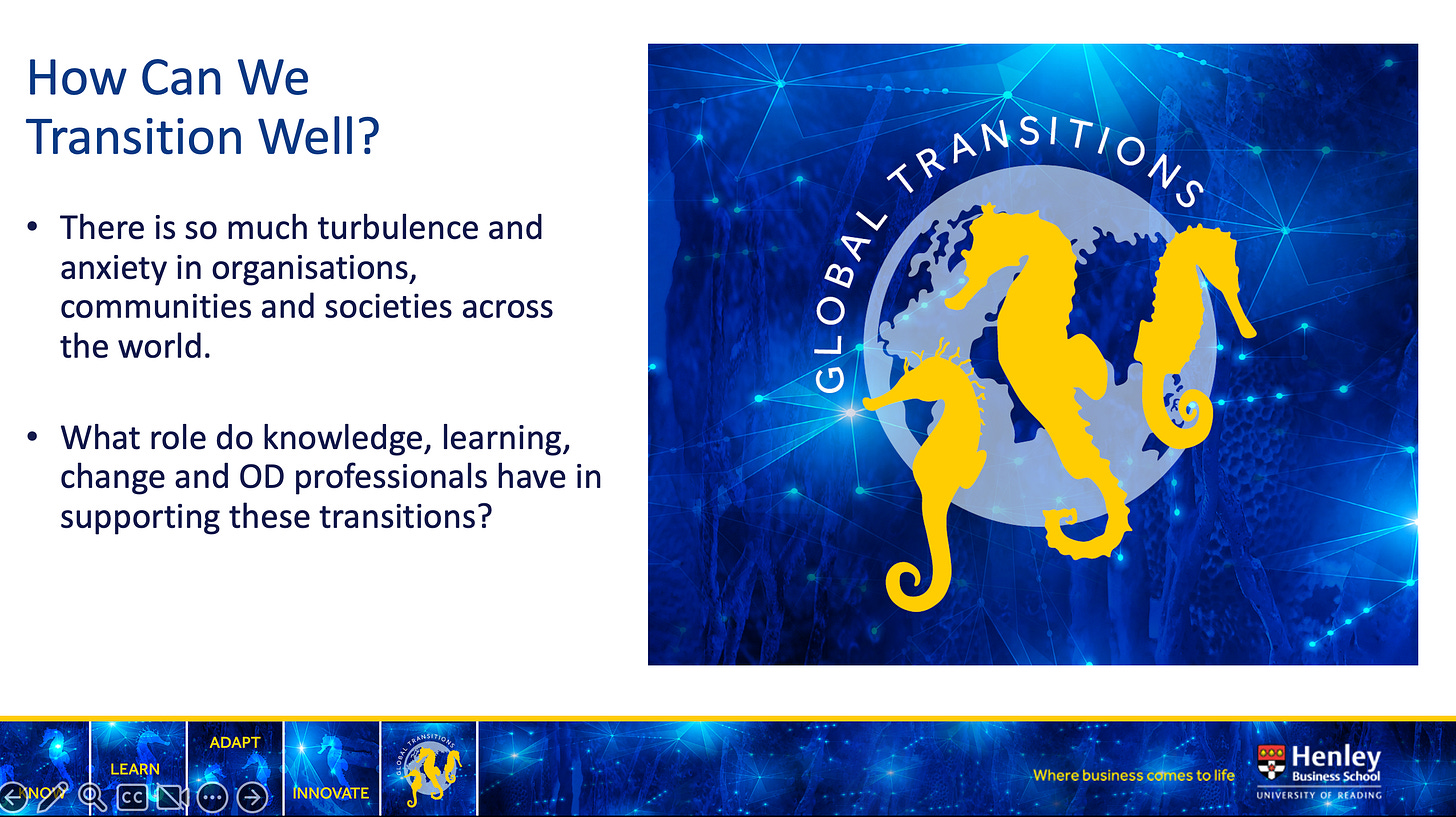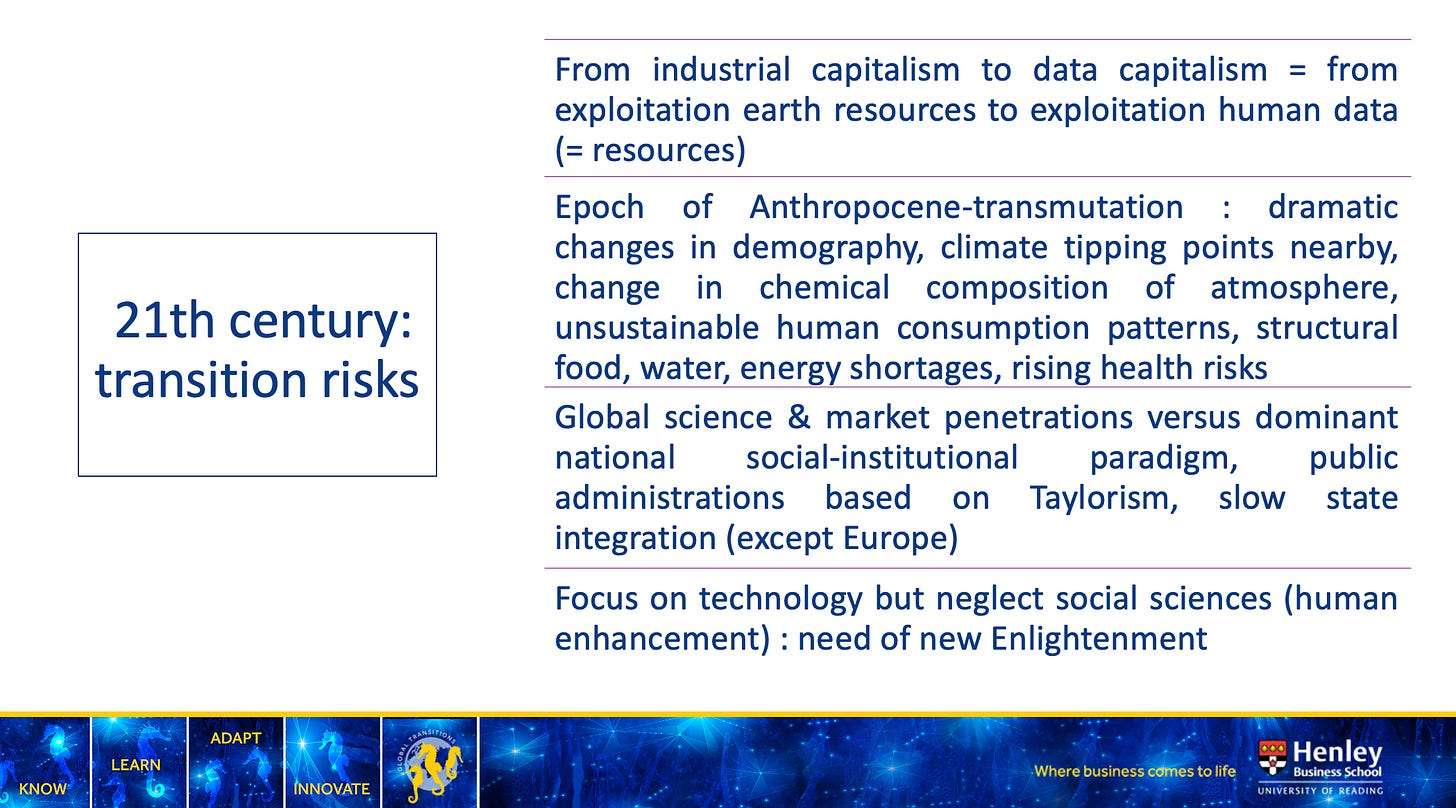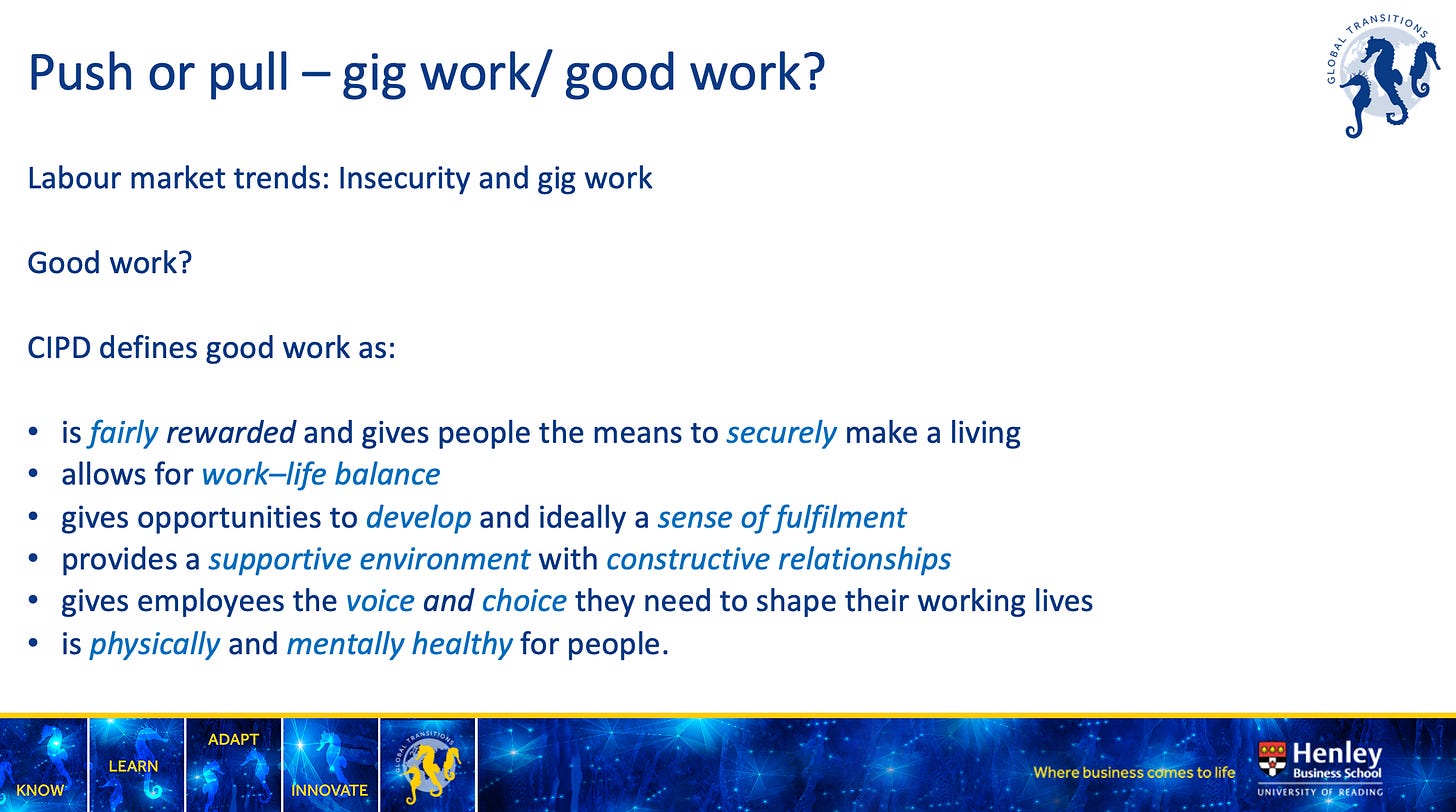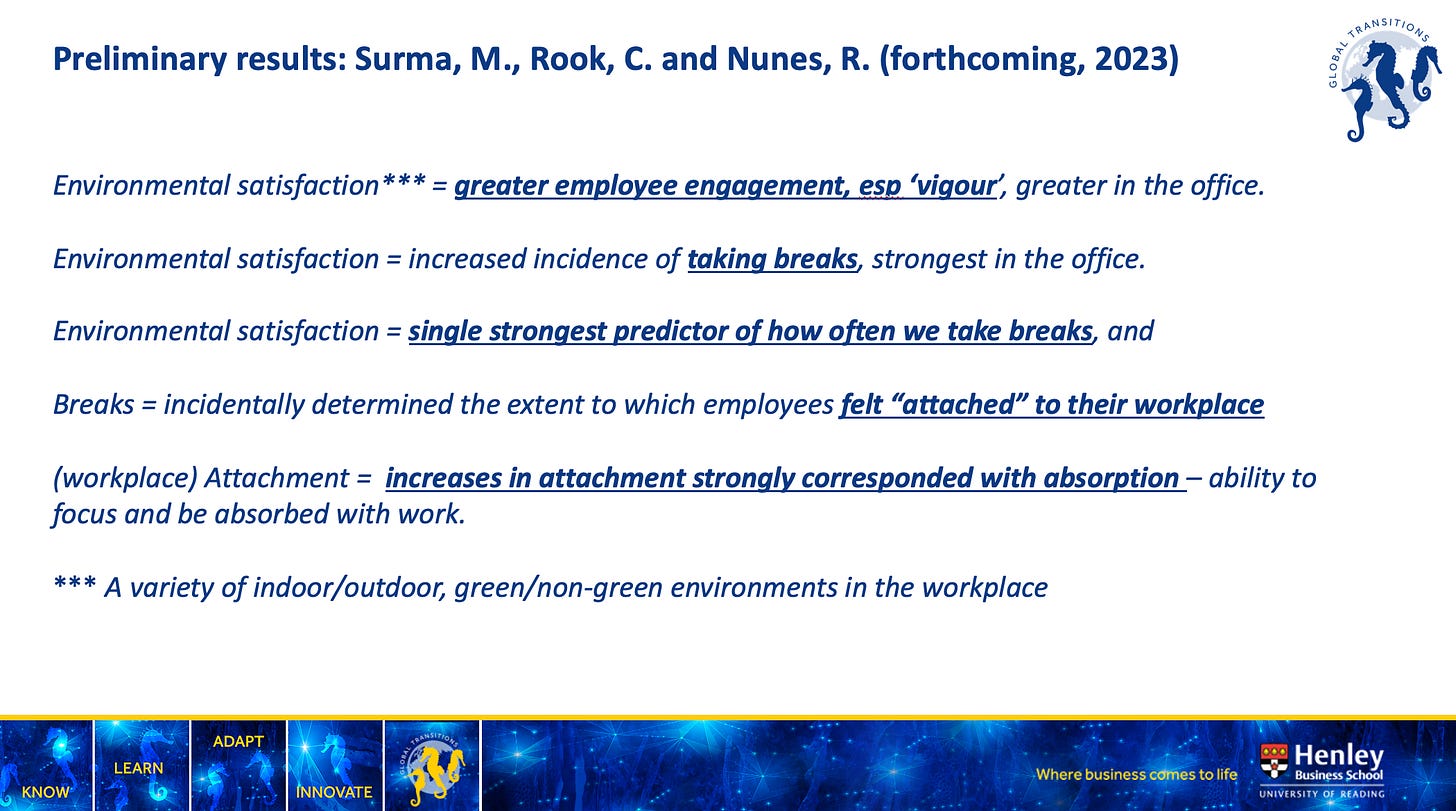Reflections from The Henley Forum 23rd Annual Conference: Global Transitions in a Changing World
Day 1: Part 1
Dr. Sue Binks, Director of the Henley Forum, kicked off the 23rd Annual Conference by addressing the theme of the conference, ‘Global Transitions in a Changing World,’ with a quote by William Bridges:
“Change is situational. Transition, on the other hand, is psychological. It is not those events but rather the inner reorientation or self-redefinition that you have to go through in order to incorporate any of those changes into your life. Without a transition, a change is just a rearrangement of the furniture.”
Dr. Binks challenged conference participants to consider what role knowledge, learning, change, and OD professionals have in supporting these transitions? To help conference participants get into the mindset to consider this provocation and those from the conference speakers, Dr. Binks asked: What transitions are you experiencing now? How are we paying attention to the transitions around us and within us? We now invite you, in response to this post, to offer your reflections.
[Slide from Dr. Stefan Schepers’ presentation]
The first half of the first day of the conference featured three distinct presentations to help participants grasp the extent of these global transitions. Dr. Stefan Schepers helped conference participants consider how ‘Change has Changed’ by examining the philosophical pillars and mega-societal challenges impacting all. Dr. Schepers explained why it feels as if we are in a constant state of chaos - because we are experiencing radical unforeseeable discontinuities, rapid advent of new technologies, destabilising of market economies, rising anxiety in society, inaptitude of govt systems, and geopolitical shifts. To address these continuous, simultaneous changes, Dr. Schepers advocated participants think holistically about how to change and prepare for the third industrial revolution by considering these key elements: a new communication system, new energy source(s), a new financial system, health and biotechnology, and climate change mitigation. Dr. Schepers asked participants to challenge old ways of thinking and reflect on how we might bring about a new Enlightenment. Check out Dr. Schepers’ speaker spotlight post for helpful texts he recommended participants read to consider how we might become more aware of what has happened in the past to recognize what is happening in the present and prepare for the future.
[Slide from Drs. Tatiana and Melissa Carr’s presentation]
Following Dr. Schepers, Drs. Tatiana Rowson and Melissa Carr fostered a conversation with participants about what is happening at work, the relationships between employers and employees, and the relationship between organizations and society. They challenged participants to consider why there are greater numbers of people leaving the workforce. Participants responded with variations of ‘choice’ and Drs. Rowson and Carr asked participants to reflect upon who has ‘choice?’ They framed ‘choice’ as a tale of two halves: meaning, differential experiences, and economic drivers impact who has ‘choice.’ They discussed how a ‘motherhood penalty’ exacerbated by childcare shortage and increasing cost, and those over 50 who are experiencing different states of being financially ‘secure’ versus financially ‘insecure’ are examples of the complexity about who, why, and how people are working or leaving the workforce. Drs. Rowson and Carr invited participants to consider how we might break to rebuild? How do we shift industrial ways of working to 21st century to experiences cultivating meaningful work and workplaces where people want to stay? Check out the research Drs. Rowson and Carr provided participants as a way to reflect on these trends and changing workplace dynamics.
[Slide from Dr. Rischard Nunes’ presentation]
Rounding out the first half of Day 1 presentations, Dr. Richard Nunes shared preliminary research findings about the relationship between employee engagement and workplace ecosystems. He began his presentation by asking participants to consider ‘engagement’ and how participants felt in their home, office, or other purpose-built workspaces. The research points to the ‘flexibility’ of the workspace and the ability to have ‘breaks’ throughout the workday as key enablers of engaged employees. Dr. Nunes advocated participants appreciate the intertwined complex relationship of sustainability and resilience, meaning the development of an ethic of care as a central dimension of building back better and the need for people-centered recovery that focuses on well-being and intentional inclusiveness for the reduction of inequalities. He cautioned that working toward resilience is not always positive, and participants must consider our evolutionary resilience to adapt. He asks: What new knowledge do we need moving forward? What skills? How do we change leadership and organisational culture? These questions and frameworks for change are being addressed in the newly formed Henley Business School Transition Academy. Check out the research papers and resources Dr. Nunes shared with participants to help them rethink, Reimagine, and reframe the relationship between employee engagement and the workplace.





